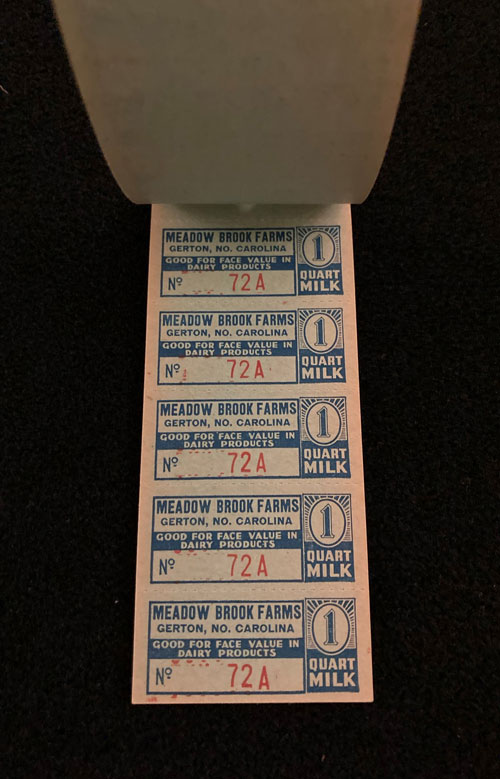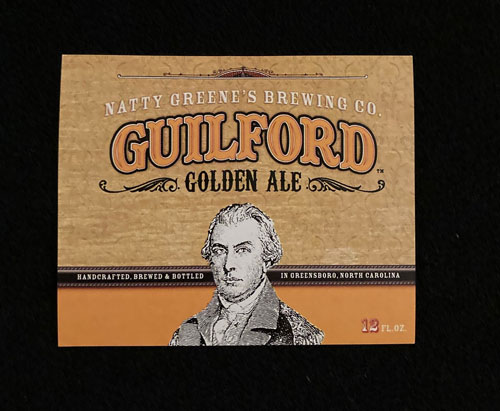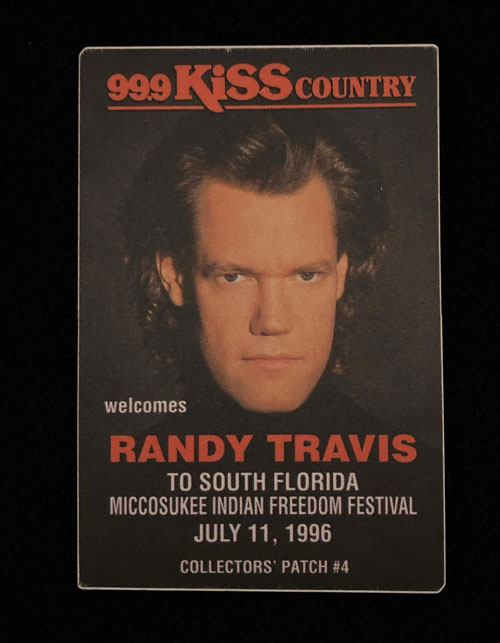Somehow this booklet of coupons good for 30 quarts of milk has gone unused — but redemption today seems unlikely given the disappearance of Meadow Brook Farms from Gerton, an unincorporated community (population: 254) in Henderson County.
The back cover advises: “To make our coupon system effective, please place coupons under the milk bottle each day. Your strict compliance with this rule will be appreciated….”
But my favorite line is “Telephone: 3.”






